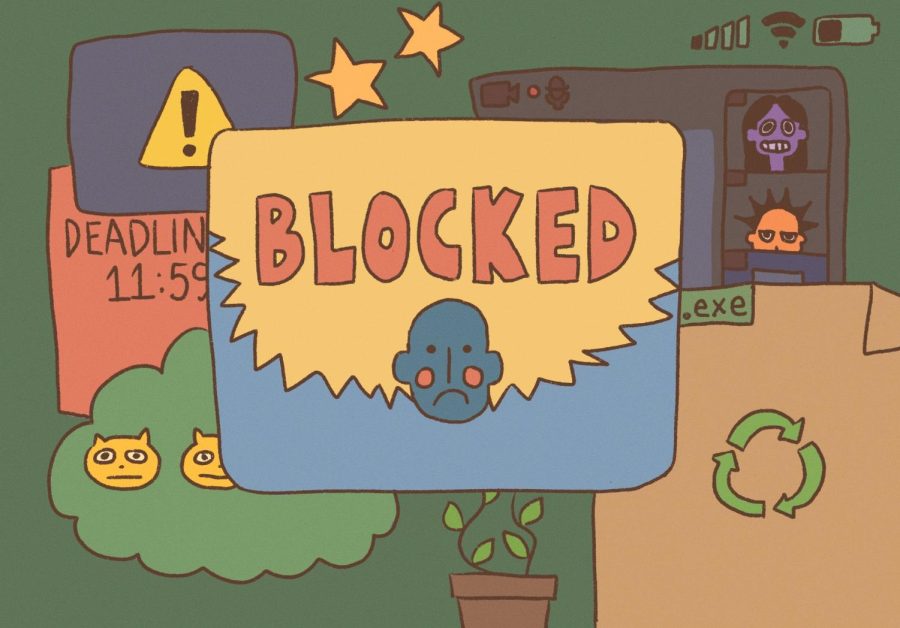Blocking websites on school servers and devices unnecessary, problematic
Assistant News Editor Ava Arcona writes that blocking of websites on school WiFi is unnecessary and limits students, especially those using school-owned devices.
November 22, 2022
Since the beginning of the school year, Algonquin students have had to work around the new restrictions set on the websites able to be visited using school devices, or when connected to school Wi-Fi. This update, while at best a minor inconvenience, has become a hindrance to the learning process and disproportionately affects those who borrow a device year-round.
The need for technology has been steadily rising since the start of the pandemic; teachers and students alike have become more reliant than ever on applications like Canvas and AP Classroom to stay up to date with assignments and keep their academic lives running smoothly. With the use of computers and phones during school hours becoming increasingly common, it is completely understandable to set boundaries on what sites can and cannot be visited in order to prevent distraction.
However, some of these limits serve little to no purpose, especially those set on school-owned devices. Prohibited services on school-issued Chromebooks include: Google Lens (reverse image searching), the addition of any Chrome extension, as well as accessing all system settings. This includes printer controls, advanced Wi-Fi and Bluetooth settings, and downloading apps on the Google Play store.
In addition, publications such as US News, Vox and Wired are all blocked on the school server, a clear limitation of students’ ability to stay up to date on current events or utilize relevant articles for academic purposes.
Some useful sites were seemingly blocked at random, including TIME Magazine and Psychology Today, likely the result of broad filters applied to certain types of web addresses. The effects are noticeable; you may have run into the “Blocked by administrator” message while working on a research project or completing assigned work.
Another issue arises when you take into account that many students rely on school-owned Chromebooks for personal use, having no alternative device available for use at home.
These students, myself included, are granted access to only the most basic sites and services even after the school day has ended. Although the devices are school-owned, more leeway should be given outside of school hours to those who require it for homework, their job or out-of-school hobbies.
Having ample access to the Internet and technology at school is a privilege not guaranteed to every student in our country; with that being said, there is room for improvement within the current system utilized by Algonquin.
Some regulation is necessary in order to maximize productivity and avoid content unsuitable for school, but restricted materials should be chosen deliberately to avoid sweeping harmless websites under the label of “inappropriate.”










